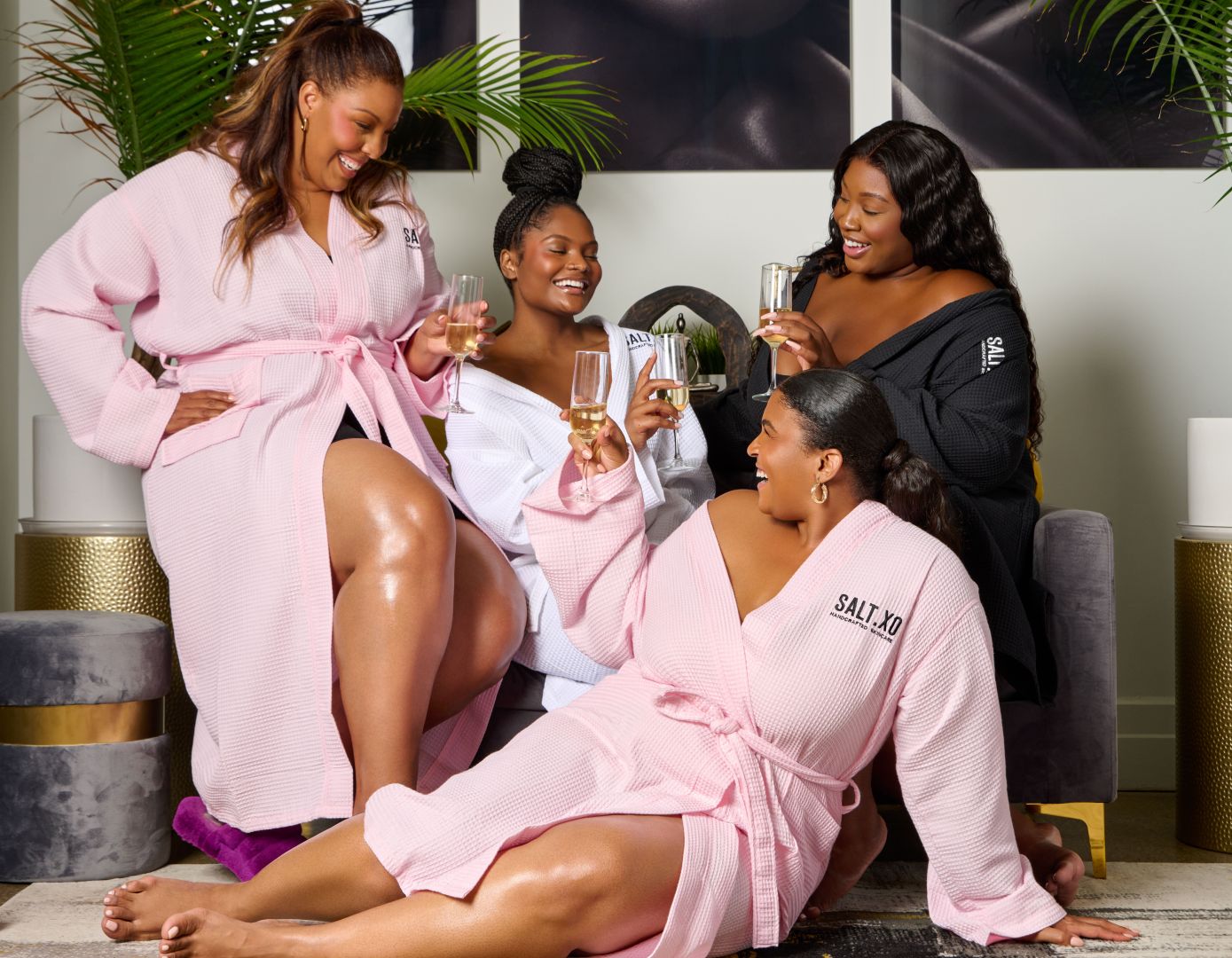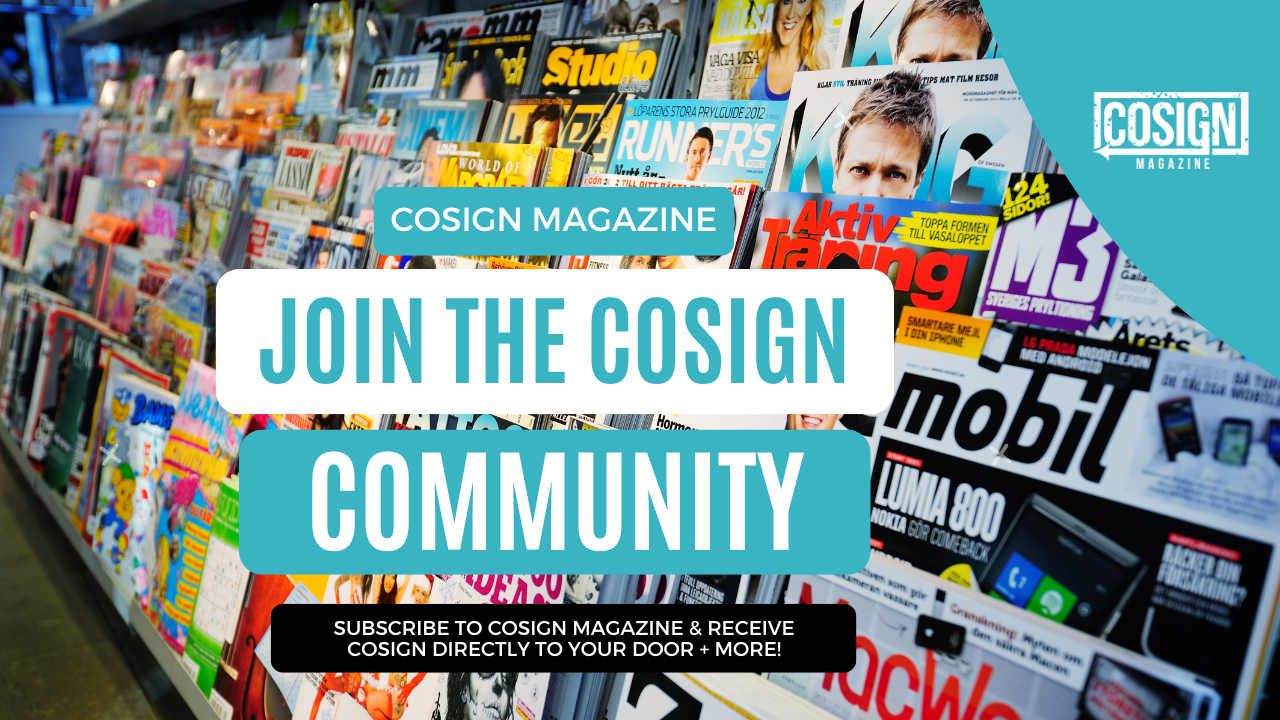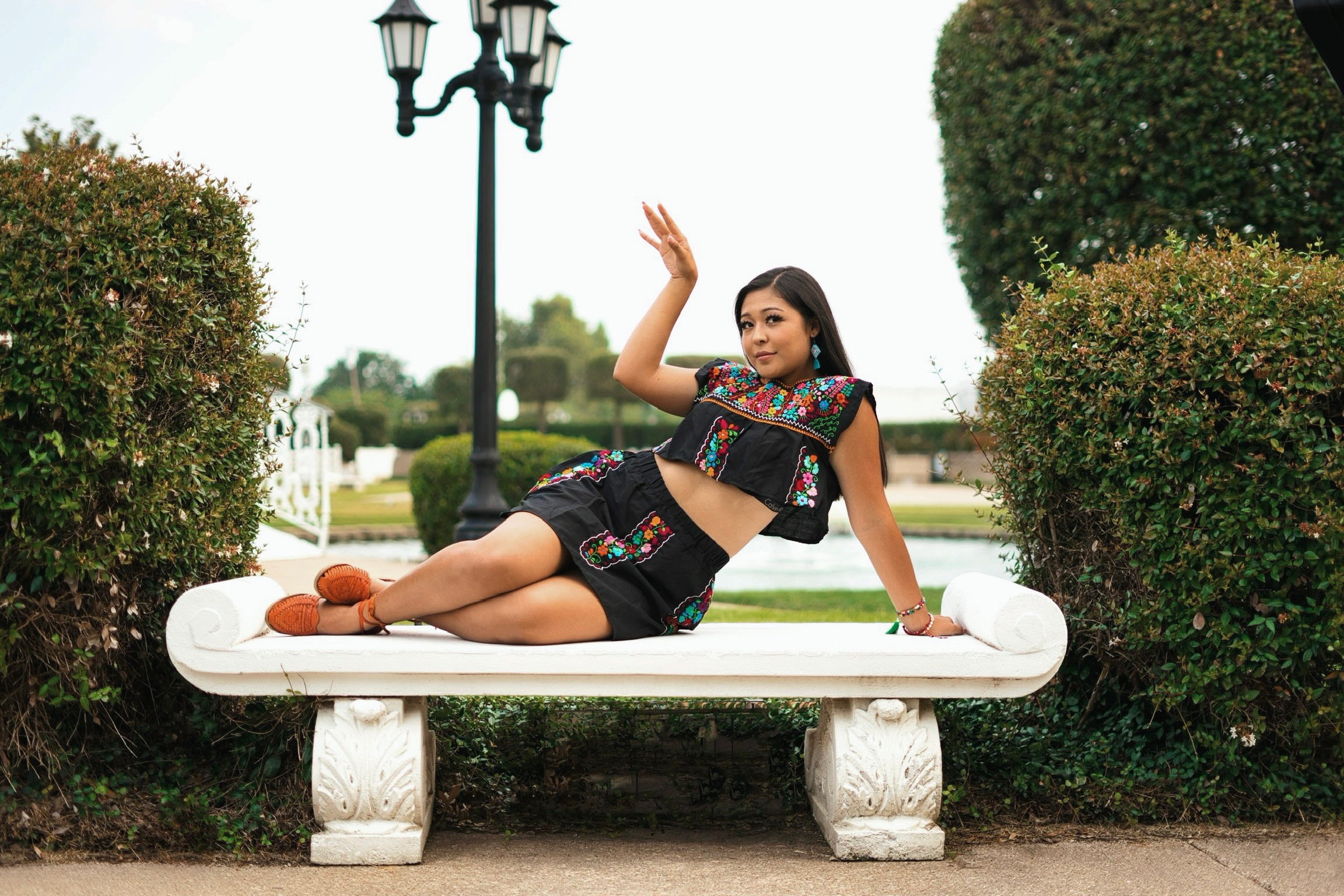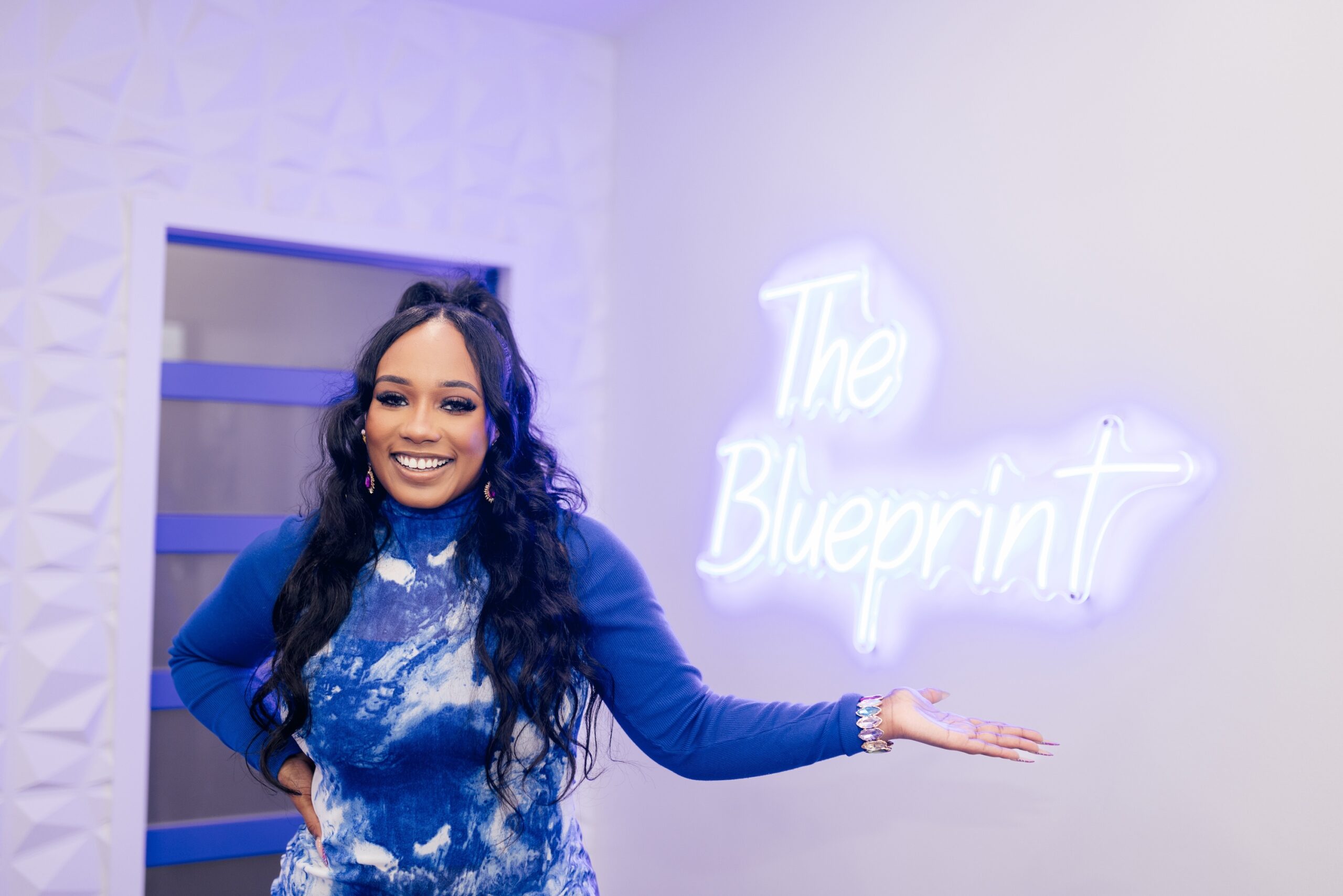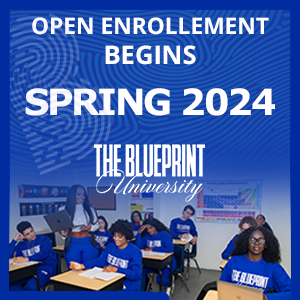It was a Monday, the last day of a COSIGN trip to Los Angeles, and hours before our bumper-to-bumper trek to LAX, we hopped in an Uber and headed to Burbank. We arrived to a non-descript building suite just off of the freeway, and had we let the subtle façade fool us, we would have thought we were in the wrong place. This was the TIMES10 headquarters, an amazing compound, equipped with an indoor basketball court, arcade games, a small movie theater, and office space to manage the brands housed here: TIMES10, the venue’s namesake of course, but also Popular Demand and Brand Wolves, the latter two the brainchildren of Blake Ricciardi. (TIMES10 belongs to Blake’s brother Ben.)
Originally from a one-stop-light town 45 minutes outside of Boston, Blake began his entrepreneurial campaign circa 2003 with his “Ruckus Sound & Style” television show. Recognizing a void in a market and filling it, as a good entrepreneur does, he was able to build a platform that grabbed the attention of the right people. “It was all about the quality of our production and our visuals,” he recalls. “At the time, there were very few opportunities for artists to do TV when they visited Boston. I felt as long as we could make our low-budget production look amazing, record labels would recommend their artists do interviews with us. It worked and once we got a few big names, more and more followed. The business wasn’t a financial success but the experience was a major success.”

That successful experience helped springboard Blake on to his next venture, a gig at clothing retailer Karmaloop. It was an opportunity that originated from the relationship he had built with the owner after filming one of the “Ruckus Sound & Style” episodes at their headquarters. “After he got to know me and realized what I could bring to the table, he offered me an opportunity,” Blake says. “I did everything I could to take full advantage of the opportunity presented to me. Karmaloop had a great team, a ton of momentum and exciting things happening.” And Blake took that momentum and launched the Internet television station KarmaloopTV. “KarmaloopTV was the first time unique video content merged with commerce in fashion. This was just under 10 years ago. We were ahead of our time,” he says. Along with KarmaloopTV, he also launched Kazbah, a dropshipping company Blake describes as “The first dropship program with a major online retailer of its kind.”
And then Blake decided to move to LA. “I needed a change; a major change,” he says. “I felt that there were limits to what I could accomplish in Boston and that there were no limitations in Los Angeles. There was just opportunity. I needed to figure out a way to tap into that opportunity. I had a really rough start in LA but stuck to it, grinded and found my footing.” By rough start, Blake is referring to a business venture in which he lost all of his money. “It was definitely a learning experience. I was humbled, but at the same time, I wouldn’t have nearly the success I’ve had with my clothing brand or anything else I’ve done,” he says. Determined to not go home to Boston, he leaned on his experience and skillset to work his way out of his predicament. “I had been in the fashion industry for a few years, so I had watched brands come and go,” he says. “You learn a lot from that. Throughout my career I had focused on marketing and I’ve designed since high school.” Popular Demand, the brand that put him on the map, would soon be the next big thing.

As with any business, especially early on, there were challenges to overcome, especially considering that he didn’t have a budget behind him. “Early on I had a few people working for me that weren’t the right fit, but it was all I could afford,” Blake says. “I developed all of the brand concepts; worked hand-in-hand with photographers to make sure my vision came through. I always wanted us to look larger than life. I hustled. I designed everything. I called every store. I took every order. I was a one-man show. I definitely didn’t have a big following at the time but I found as many store lists as possible, kept calling until I finally got a buyer’s email address and started sending out line sheets. I got just enough buyers interested that I could pay the bills.” Blake had created a buzz with four designs and had offset his lack of capital with plenty of hard work. “Eventually the hype of the brand started to attract some great people and I was able to start building out my staff. From there, I started to see who really fit our culture and added to it.” And Blake didn’t mind that his staff was young and inexperienced; they were creative and hungry to learn. “I love people that want to grow and have passion for the process. Each member of my team has those characteristics.”
The grind paid off. “People liked the shirts and I gave them really great prices on them … I started getting into ten, fifteen, thirty, fifty boutiques early on and I was fortunate because customers bought the product,” he says. “Most people think, ‘Man, if I just get in the store,’ but then the next step is, ‘Well, does somebody actually buy the product?’” People did buy the product and when retailers began reordering, Blake started to realize that he had something. “So then that was the time I was like, ‘Okay, I have this momentum, how do I turn this little thing I’ve created into an actual business? Something that will hopefully be long lasting.’”
 As Popular Demand grew, there came a point that the money was rolling in, but Blake, wanting to make the most of his newfound success, found himself with a new set of problems. “At the time, it was a lot for me. I was like, ‘What’s happening? How do I handle this? What do I do with this?’” he says. “And it was a different, so when you’re starting something new, you wouldn’t feel if you didn’t have some level of fear, right? It’s a new thing; you have to be like, ‘How do I accomplish this?’ At that point my mindset was a little different, because at that point, it was, ‘How do I not fuck this up?’”
As Popular Demand grew, there came a point that the money was rolling in, but Blake, wanting to make the most of his newfound success, found himself with a new set of problems. “At the time, it was a lot for me. I was like, ‘What’s happening? How do I handle this? What do I do with this?’” he says. “And it was a different, so when you’re starting something new, you wouldn’t feel if you didn’t have some level of fear, right? It’s a new thing; you have to be like, ‘How do I accomplish this?’ At that point my mindset was a little different, because at that point, it was, ‘How do I not fuck this up?’”
Spoiler alert: Blake didn’t fuck this up. As a matter of fact, he did quite the opposite. And his determination, and refusal to be content, played a large part in Popular Demand’s success. Even when the brand reached sales milestones, it wasn’t something that Blake looked at and patted himself on the back for, he just keep working. “I’ll be honest. I don’t really remember it as a big deal,” he says of reaching one million dollars in sales. “Not because it isn’t a big deal, it definitely is, but because I am always focused on doing more, being better, improving, getting to another level. I remember the losses more than the wins because they stick with me. There have been a lot of losses but we win much more than we lose. That being said, what I remember the most are the experiences that have come with owning Popular Demand.” Particularly he referenced Rihanna, Chris Brown and Y.G. coming to the Popular Demand one-year anniversary party. “I didn’t get to enjoy it myself too too much, because I was busy running the party, but it was cool, it was some level of validation and being here in California, and in Los Angeles, and seeing this many people come out and a line out the door for a brand that I started,” he says. Blake also mentioned their first video holiday look book and remembering how impactful it was to the brand, the reactions people had to their billboard campaigns, and their five-year anniversary in Vegas, all as memories that have trumped quantifiable monetary successes. The memories that have stuck with him have been the successes in influence he’s achieved through an unrelenting grind and positive and creative work culture at Popular Demand.

What really stands out about Popular Demand is how people, especially celebrities, athletes and influencers, have embraced and COSIGNed the brand. And Popular Demand has reciprocated those COSIGNs as well, by building relationships with people they believed in. They worked with Cardi B early on in her career, Sage The Gemini as well, and from nearly the beginning of the brand, had established a working relationship with Ty Dolla $ign; he was on their first billboard. “When you’re talking about COSIGNs,” Blake says. “I think a lot of people forget the relationship nature of it, the sense that, the fact that you have to build a genuine relationship with these people, especially considering the fact that we’re in LA. It is a big city, but there are small circles and if you have a reputation as somebody who’s always taking, taking, taking, like having an artist come through and always looking for stuff out of them, word gets around quick. Instead we took a different approach, our approach was, ‘Let’s meet these people, let’s get them product, and let’s just build a nice relationship with them.’” And the key to these relationships has simply been that they are real relationships. Blake wouldn’t ask anything of anyone, but when mutually beneficial opportunities would arise, he would reach out to collaborate. That mentality of not only looking at things with the “How can this help me?” perspective has gone a long way. “We prefer the relationship is natural and something that’s really great for both sides,” Blake says.
Now that Popular Demand is a success, Blake has begun to focus on a new venture, his holding company Brand Wolves, which he created to house his future brands. “It’s a strong name, right?” he asks. “I built an identity for Brand Wolves because the people behind businesses are becoming more transparent, so you know this person owns this. The faces of these companies matter, so for me, when I was doing Popular Demand, I knew at some point I was going to want to launch other brands … they’re not Popular Demand brands, they’re my brands, in the sense that they could appeal to the Popular Demand customer, but they could also appeal to hopefully entirely different fanbases.” Brand Wolves allows Blake to sell himself separately from Popular Demand and add a different identity to his future ventures.

“I want to be identified as a person who develops brands for both myself, and hopefully in the future, somebody brings me a company like, ‘Hey I got this brand idea but I need your help on it.’ I may do that. There’re very few instances where I’ll be doing anything unless it’s just straight consulting work, that I’m not a partner in that brand … Brand Wolves just gives me an opportunity to take my team and then eventually just launch other projects. We have a number of them that we’re working on in different spaces.”
Six years in, Blake is proud of what Popular Demand has achieved and looks to continue to “disrupt” as much as he can with his future ventures. His work has taken him from Small Town, Massachusetts to a home with a view of the Hollywood sign. He finds inspiration in seeing his fellow entrepreneurs put it all on the line for their dreams. “I’m almost inspired as much by the people that didn’t make it … if they did it the right way and really put that effort in, I’m inspired by that, as well as that no fear sort of attitude to try to make it out there,” he says. “I’m COSIGNing them if they’re out there really doing it. Not saying they’re doing it, [but] taking risks, making sacrifices, teaching themselves everyday of how to get better. I have the utmost respect for those people because the odds are, in any of this, when you’re an entrepreneur, statistically the odds are you’re not going to be successful, and odds unfortunately are that you’re not going to be in business, whether it’s a year or five years. And somebody who is willing to go after things and really willing to put themselves out there and try to make it, whether it’s a music artist, a graffiti artist, somebody trying to start a clothing brand, or somebody that’s trying to start a tech company. There’s something about that energy that I really fuck with, so I have to say that’s it’s the entrepreneurs on the way up are the ones I COSIGN the most.” Coming from taking a chance and moving to LA, to losing it all but still persevering, it only makes sense that Blake values a fearless grind, the same kind of grind that has put him and his work into the consciousness of so many.



